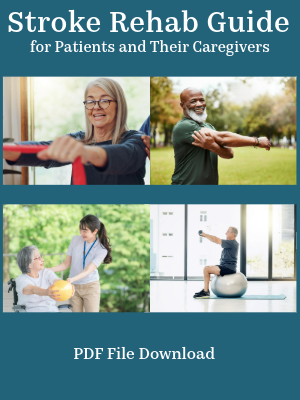Submissions from Readers
Flying and Strokes
by Ric
(Kansas City Mo)
Question: How soon after having a stroke can you fly? My fiance is in Hong Kong on business and had a stroke and I was wondering how long before she can fly home?
ANSWER: First, your fiance should be cleared by her physician to fly. The physician's decision will be based upon the stability of your fiance's condition as well as the debility caused by the stroke. Airlines also have medical restrictions regarding flying that should be observed. Guidelines from the Aerospace Medical Association (published in 2003) suggest that one should not fly for at least two weeks after a stroke, but a physician may recommend not flying for several months after a stroke depending on the severity. There are many reasons that one would be advised not to fly including having a propensity to form clots, not being able to handle the lower oxygen levels, not being able to sit for long periods of time, etc. It varies on a case-by-case basis. Only the physician involved in your fiance's care could answer your question accurately.
Is it Safe to Fly After Stroke?
by Barbara
(Luang Prabang Laos)
Question::Six weeks ago I had a mini stroke TIA. Because we live in Luang Prabang, Laos there is no medical help available. At first we thought it was a middle ear problem as I fell to the floor and had lost balance and blurred vision. The following day we made our way to Vientiane to a French Dr who immediately gave me asprin and told us to get to Bumrungrad hospital in Bangkok. We made it there the following day.I was admitted and given a MRI scan and eyes checked. MRI showed a small stroke. Eyes are good. Bloods showed high cholesterol.
I have been put on Asprin 50. Lipitor 10mg once a day and Methycobal 500 mcg twice a day.
The Neurologist said this was good treatment and I shouldn't have any more problems. Unfortunately last week I had another attack, though not as bad as the first one still scary knowing no medical help available. I'm recovering yet again and still feel very tired.
I'm flying back to New Zealand on Saturday and am wondering if there is anything else I should be taking to prevent another attack. It is a 12 hour flight.
I'm a female 63years old.
Hope you can help.
Many thanks
Barbara
Answer: Here are some tips to follow when flying after having a stroke:
1. Get permission from your physician to fly. Also, ask your physician if you should make any changes in medication or changes in dosage of medicine before flying. I would call your physician in New Zealand if you don't have one you can contact in Laos.
2. If you sit in one position for too long, blood can pool and this increases your risk for a blood clot and stroke. To help prevent this, stretch the legs periodically, move your ankles around in circles and up and down, walk around, and wear support hose to prevent the blood from pooling.
3. Drink water and avoid alcoholic drinks.
4. If you have any swelling or pain in the calves after the flight, seek medical attention.
Hemorrhagic Stroke and Flying
by Kathy Wlash
(milwaukee)
Question:My daughter had a hemorrhagic stroke 5 weeks ago. She had a right frontal bleed and a infarct on both sides of her brain in the back of her head. Is she safe to fly at this time?
Question: This is a question that you need to ask her neurologist and/or other MD managing her care. There is no set guideline that I would recommend for any stroke patient to follow regarding flying as each case and medical history is different.
On the University of Wisconsin website it states that the pressure caused by flying can damage the areas healing from a brain bleed and that one should contact their MD prior to flying if it has been 6 weeks or less and no surgery was performed. They have the same 6 week recommendation for those who have had craniotomies. The article on their website can be found at:
www.uwhealth.org/healthfacts/B_EXTRANET_HEALTH_INFORMATION-FlexMember_Show_Public_HFFY_1122986589579.html
Again, every case is different though so it is important to consult her physician with this question.
Risks involved in flying!
Question: A year ago, my husband had an ischemic stroke on his left side which affected his right side. He is now walking, driving, using his right hand somewhat, but his speech is not yet 100% right. He had a seizure attack three months ago. He is on medication for that. Will it be OK for him to travel by international flight?
Answer: You should consult with his MD to see if there is any issues with your husband flying on a long flight and if there are any special precautions to take (e.g. anti embolism stockings or medicine issues). There are certain precautions with long flights that all individuals should follow to avoid blood clots, and you can find those listed above (e.g. moving around, ankle circles, drinking water). Many people who have had strokes and seizures fly without problem, but I would check with the MD to get clearance/advice.
Treatment Tips from Others
To see tips from other survivors and caregivers about their treatment recommendations, click here.
Get Our Stroke Rehab Guide

Our stroke rehab guide is designed specifically for patients and caregivers. It's in pdf format and can be immediately downloaded. It includes about
- Stroke Definition & Causes
- Stroke Treatment
- Rehabilitation Information for Physical, Occupational and Speech Therapy
- Exercise pictures
- Q&A from patients and caregivers
- Adaptive Equipment & Techniques
- How to Prevent Another Stroke & More!
Medical Disclaimer: All information on this website is for informational purposes only. This website does not provide medical advice or treatment. Always seek the advice of your physician or other healthcare provider before undertaking a new healthcare or exercise regimen. Never disregard professional medical advice or delay seeking medical treatment because of something you have read on this website. See the disclaimer page for full information.
- Home
- Stroke Questions
- Risks involved in flying!















